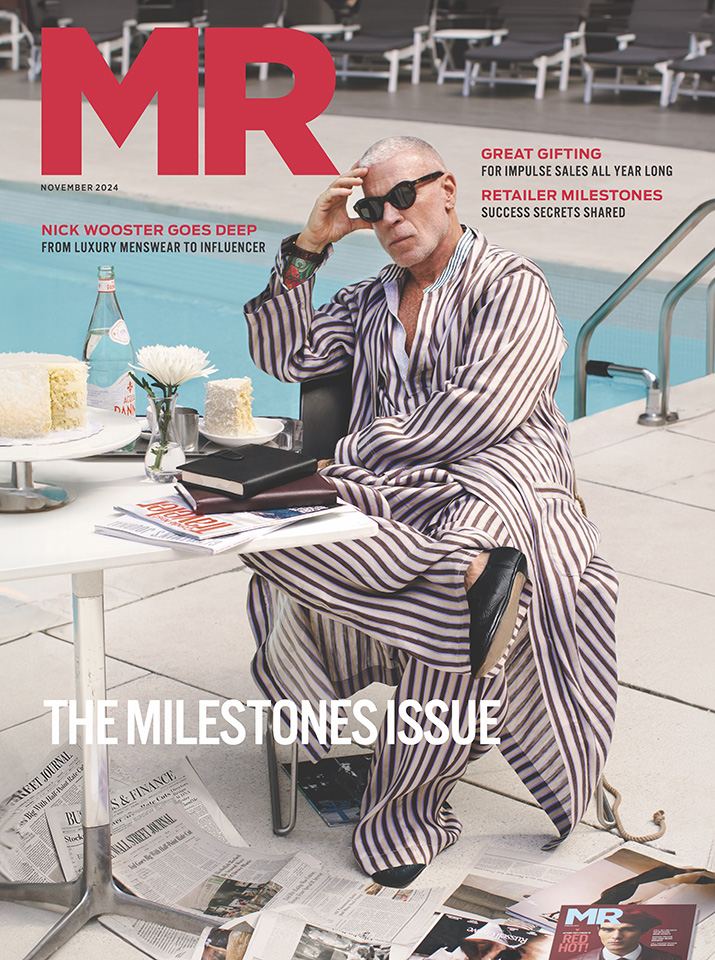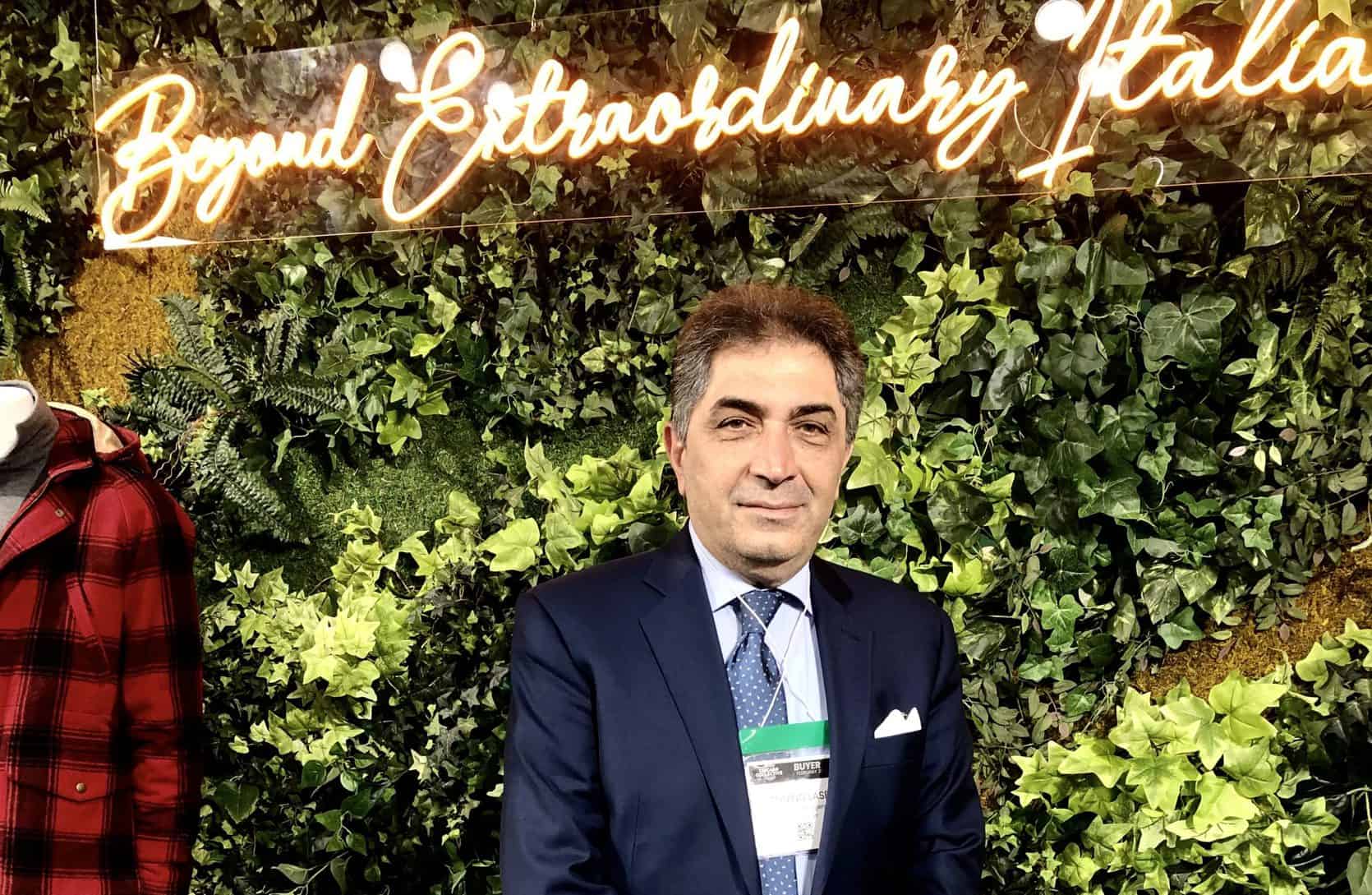CATCHING UP WITH ICE COMMISSIONER ANTONINO LASPINA

It was a spectacular showing of beautiful Italian menswear at the Chicago Collective this week thanks to the Italian Trade Agency sponsorship of 54 made-in-Italy luxury brands. And the timing could not be more perfect, as U.S. specialty store retailers were on a mission to find unique, artisanal Italian fashion to offer their customers something truly special. Here, we sit down with ICE commissioner Antonino Laspina to learn more about the government’s mission and how it has evolved.
“Business is still based on two key factors: a personal touch and trust.”
Antonino Laspina
Can we begin with a little background: how long have you been in this job and what is the mission of the Italian Trade Agency?
This is my 40th year with the ITA; my assignments have included stints in Korea, Malaysia, Taiwan, and 12 years in Beijing, from 2003 to 2015. The ITA mission is essentially unchanged: to promote Italian goods internationally with a focus on small and medium-sized companies. We want to give a new generation of young entrepreneurs an opportunity to grow. Many of today’s highly successful Italian brands have grown up with us.
How has your mission evolved in the 40 years you’ve been involved?
Essentially, our mission now is to introduce Italian goods in a rapidly changing market. The old challenges were about product innovation, evolving trends, new fabrics; today’s greatest challenges involve how companies approach marketing, how to handle e-commerce, how to remain flexible in order to deal with the unprecedented pace of change. Small businesses have both assets and liabilities: it’s wonderful to have small artisanal multi-generational businesses but if the company volume is below a certain level, it becomes difficult to compete.
With so many small companies, do you worry that Italy is losing its edge as an apparel manufacturer?
Absolutely not. The good news is that Italy is still a manufacturing powerhouse. The supply chain is all Italian, with mills and artisans in close geographic proximity. This is a tremendous advantage, especially in today’s quest for sustainability. Italian companies are green by nature: we have artisans who work from homes or workshops that are very near the fabric mills. Our factories are a unique combination of tradition and innovation with a new generation of entrepreneurs reinventing the old traditions. This is why a growing number of global brands are now sourcing in Italy, making deals directly with the factory owners. Many retailers too are sourcing their private label goods directly in Italy.
Do you agree that a new generation of consumers has a growing appreciation for Italian craftsmanship?
Yes. There is clearly a greater appreciation for how the product is made: the stitching, the softness of the fabrics, the quality construction, the hand-crafted details. But it’s a combination of old and new. Young people want to be educated about the process, the traditions. And perhaps because of the pandemic, consumers seem to be buying less, but buying better. It’s about more responsible shopping with sustainability at its core. And younger entrepreneurs seem to have a keen sense of these changes, coupled with a unique ability to be flexible. All this bodes well for the future of Italian brands.
Will you continue your Italian pavilions at U.S. trade shows?
Yes. We are sponsoring the Italian Pavilion once again in Chicago in August. With more brands now assigning reps in the States, follow-up becomes much easier for the retailers. And with e-commerce clearly the business of the future, more Italian brands are getting up to speed.
Does the growth in e-commerce mean the demise of brick & mortar?
Of course not! Both retailing and wholesaling still need a personal touch, be it a wine bar or corner café in the store/showroom or a genuine relationship with the company founder. Business is still based on two key factors: a personal touch and trust. Company values are also important and can be communicated via storytelling, e.g. a video about the tailor who created your first suit…
Bottom line, the ITA is like a big brother, a facilitator, with a goal to make business easier for both retailers and brands. We intend to combine our artisan approach with the intuition to jump on what’s next. It’s a delicate balance.
What have you learned from your years in this business?
Although fashion is just a small part of what I do (I just returned from a trade show in Vegas with 200+ Italian food companies), I’ve learned that there’s nothing frivolous about dressing appropriately: it definitely impacts one’s image, as well as one’s self-esteem.


